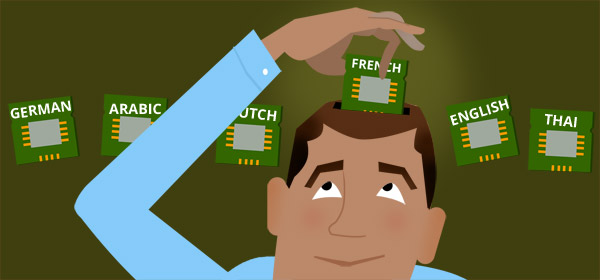
Inductive learning, also known as discovery learning, is a process where the learner discovers rules by observing examples. This is different from deductive learning, where students are given rules that they then need to apply.
Continue reading


Inductive learning, also known as discovery learning, is a process where the learner discovers rules by observing examples. This is different from deductive learning, where students are given rules that they then need to apply.
Continue reading

In a global survey by the Economist on how cultural and communication barriers affect business, two-thirds of 572 international company executives said that multicultural teams increase their organisation’s innovation. Why is this? In this blog post, we give a brief summary of some of the latest research into the benefits of multilingualism. Continue reading

With so many online language courses available nowadays, how can training managers or directors of human resources decide which course will be the most effective for their organisation? Here are some essential questions to ask to ensure you select the right solution to meet your needs. Continue reading

The word “syntax” describes the rules we use to put words together to make sentences. It shows the relationship between words and their meaning in sentences. Continue reading

Functional language is language that you need in different day-to-day situations. For example: greeting, introducing yourself, asking for or giving advice, explaining rules, apologising, or agreeing and disagreeing. Any one of these functions can have a number of different exponents, or fixed expressions. For example, giving advice we could say: Continue reading

Skills relate to different aspects of using language; such as listening, reading, writing or speaking. Skills are our ability to do these things. They are usually divided into two types: receptive and productive. Continue reading

Task-based language learning is an approach where the planning of learning materials and teaching sessions are based around doing a task. In education, a task refers to an activity where communication is necessary: for example; deciding something, solving a problem, designing or organising something, or Continue reading